Weekend Reading on Women’s Representation is a compilation of stories about women’s representation in politics, on boards, in sports and entertainment, in judicial offices and in the private sector in the U.S. and around the world—with a little gardening and goodwill mixed in for refreshment!
Milestones for notable women this week include birthdays for: Mary Church Terrell, African American civil rights activist and suffragist (1863); Muthoni Wambu Kraal, partner at NEWCO Strategies; New York City council member Diana Ayala; U.S. Rep. Erin Houchin; Mehrnaz Teymourian, RepresentWomen board member; Erin Loos Cutraro, founder & CEO of She Should Run; U.S. Rep. Doris Matsui; U.S. Rep. Marilyn Strickland; Onida Coward Mayers, RepresentWomen board member; Sophie Dorf-Kamienny, RepresentWomen alum; Serena Williams; Corinne Bennett, RepresentWomen alum; Fatma Tawfik, RepresentWomen international research manager; Vi Alexander Lyles, mayor of Charlotte, N.C.; Madeleine M. Kunin, former Governor of Vermont; Poppy McDonald; and Katharine Pichardo-Erskine, executive director of Latino Victory Project.
The Power of Gathering: How Connection Fuels the Fight for Democracy
This week filled me with such joy. For the first time in a while, our team at RepresentWomen gathered together in person—sharing meals, laughing, reflecting on how far we’ve come, and looking ahead with fresh energy. There is something uniquely powerful about being in the same room with people you admire and care about, especially when that room is filled with women who are determined to build a stronger democracy.
As part of our time together, we also had the privilege of meeting with friends in the reform space—including FairVote, an organization my husband Rob Richie co-founded years ago, along with Takoma Park Mayor Talisha Searcy and Maryland Delegate Jheanelle Wilkins.
Sitting in conversation with these leaders, I was reminded once again that real change is never the work of one person or one organization. It takes connection. It takes collaboration. And above all, it takes the courage to convene.
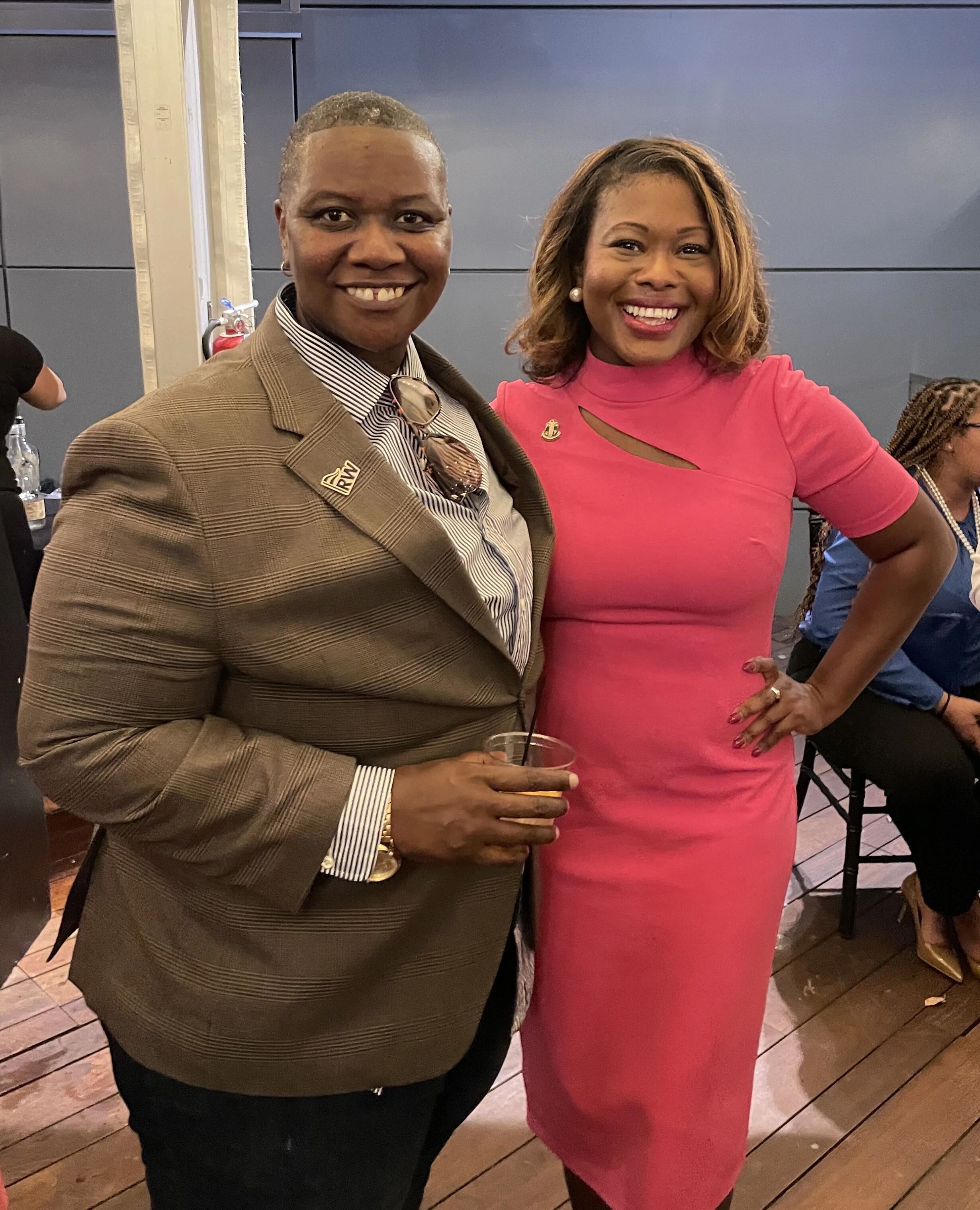
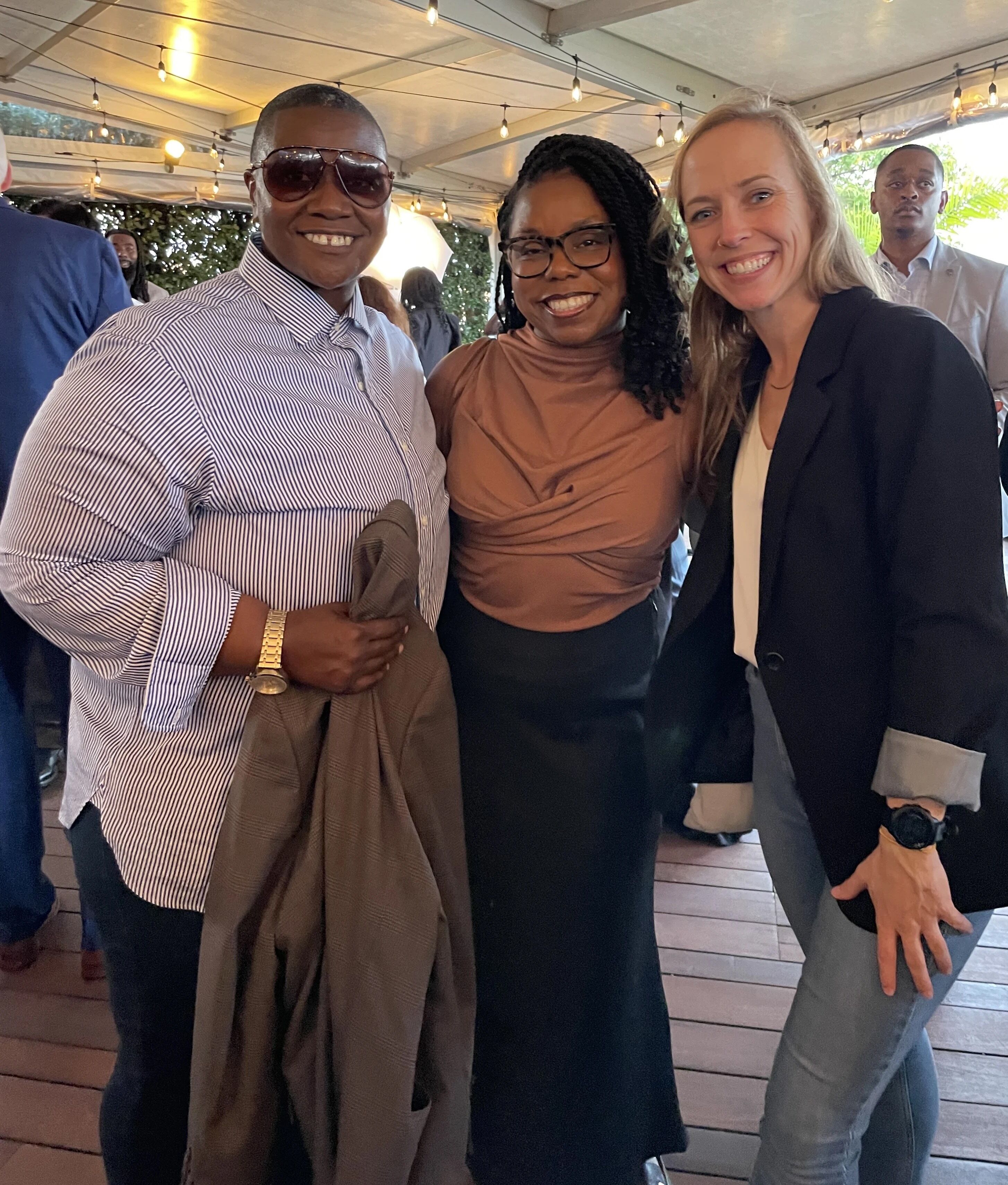
Thirty Years After Beijing, the Call to Convene Women Is Louder Than Ever

That word—convene—has been on my heart all week. Our gathering in Maryland echoed another that has shaped the global movement for women’s equality: the 1995 Fourth World Conference on Women in Beijing. That historic convening—the largest gathering of women in history—sparked commitments and connections that continue to ripple forward three decades later.
Alyse Nelson, now president and CEO of Vital Voices, shared her own story this week of boarding a plane to Beijing at just 21 years old. That leap of faith helped shape her lifelong commitment to advancing women’s leadership. Her reminder is timeless: Whether you’re 21 or 51, take the leap, follow your passion—the world needs your voice.

And Hillary Rodham Clinton, who in Beijing declared that “women’s rights are human rights,” is once again sounding the alarm. Thirty years later, she is warning that progress is under threat, urging governments to consider bold solutions like gender quotas to accelerate women’s representation. In her words:
“This is an all-hands-on-deck moment for women across the world, who have benefited from the changes in laws, regulations and norms over the last 30 years, to realize that there are strong forces at work to try to turn the clocks back.”
Her warning is sobering—but also galvanizing. It echoes what I felt sitting beside my colleagues this week, surrounded by women and allies determined to ensure progress continues. When women come together, share our strength, and lift one another up, the impossible becomes possible. That was true in Beijing in 1995. It is true today in 2025. And it will be true thirty years from now if we keep carrying the torch forward.
So, as I reflect on our own convening this week and the global gatherings being commemorated, I feel immense gratitude—for our team, for our partners and for each of you. Together, we can ensure the next thirty years move us forward, not back.
Sixty Years Since LBJ Signed the Equal Opportunity in Employment EO—and Today’s Fight to Protect It
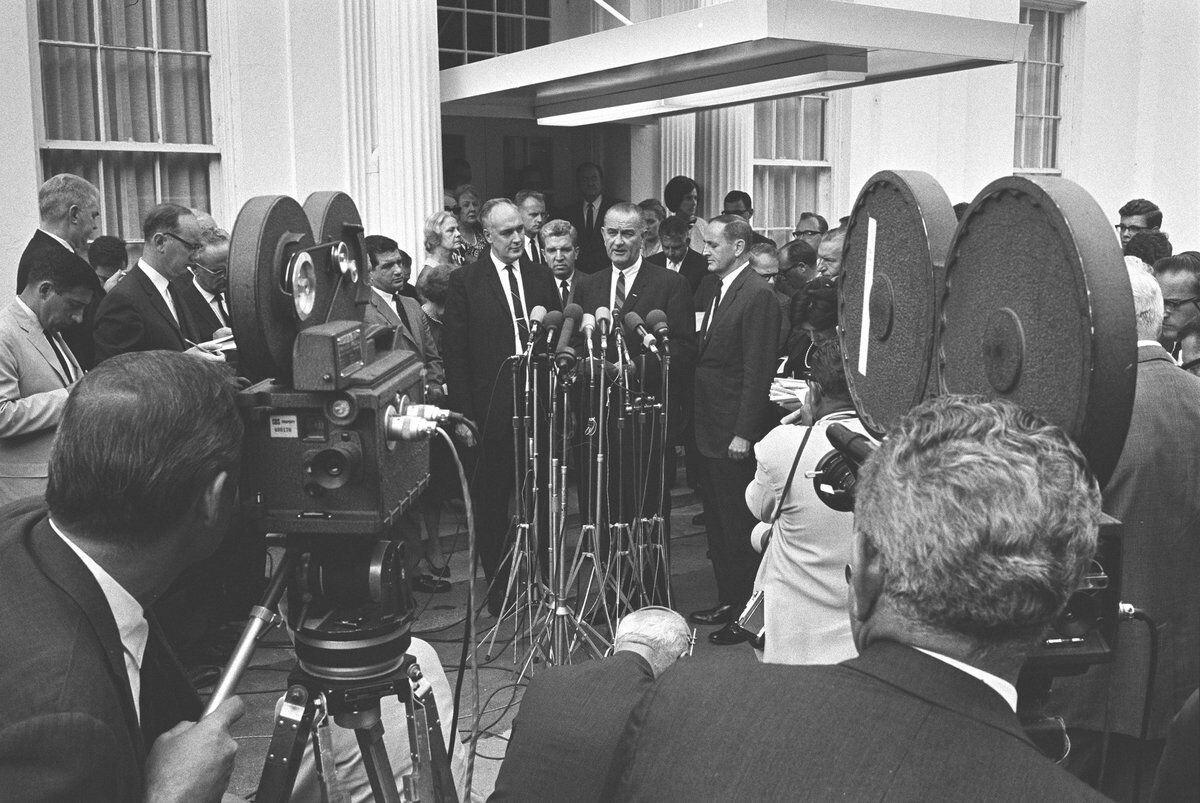
Signed 60 years ago this week, Executive Order 11246 was a landmark step by President Lyndon Johnson to advance equal opportunity in employment. The order prohibited federal contractors from discriminating based on color, race, religion, sex, sexual orientation, gender identity or national origin, and required affirmative action to ensure equal employment opportunities. Over the decades, it became one of the cornerstones of the civil rights protections, covering more than one-fifth of the American workforce.
But on Jan. 21, 2025, just two days into his second term, President Trump revoked EO 11246— a significant rollback of protections that had stood for six decades. In the months since, the administration has introduced new measures limiting diversity, equity and inclusion efforts by employers.
The history of Executive Order 11246, however, shows us that progress has never come easily and that setbacks do not erase the arc of change. Its roots stretch back to 1941, when civil rights leader A. Philip Randolph organized a March on Washington that pressured Franklin D. Roosevelt into issuing Executive Order 8802, banning discrimination in the defense industry. And while Johnson’s initial 1965 order excluded sex discrimination, women’s leaders pressed for its inclusion, leading to the addition of gender protections just two years later through Executive Order 11375.
As President Johnson once said during his commencement address to Howard University in June 1965, “It is not enough just to open the gates of opportunity. All our citizens must have the ability to walk through those gates.”
The legacy of Executive Order 11246 reminds us that civil rights progress does not happen by accident. It requires advocacy, enforcement and political will. And for women, especially, it has taken decades of sustained organizing even to secure a foothold at the gates of power. At RepresentWomen, we see this same truth in our Gender Parity Index: Without intentional systems reforms, progress for women’s political representation remains slow, uneven and too easily reversed.
Just as affirmative action reshaped workplaces, structural reforms such as ranked-choice voting, proportional representation, and candidate recruitment targets can shape our democracy. The history of Executive Order 11246 shows us that when movements remain steadfast—and when rules are rewritten to level the playing field—women are not only able to enter the gates of opportunity, but to lead from within them.
Arizona Sends Adelita Grijalva to Congress in Special Election and Forces Action on Epstein File Legislation

Congratulations to former Pima County supervisor Adelita Grijalva (D) for becoming the latest woman member in Congress after she won a landslide victory by close to 40 percentage points in a special election in Arizona to fill a seat in the wake of her father’s death earlier this year. Grijalva comes to Congress with insights on what matters at home, having served in a local office for two decades.
The Hill reports on one byproduct of her election:
“Grijalva’s win also means that Reps. Thomas Massie (R-Ky.) and Ro Khanna (D-Calif.) will clinch the number of members needed to support their discharge petition over the Jeffrey Epstein files and the Justice Department’s handling of it.”
Of the four Republican House members signing the petition about the actions and allies of a sexual predator, three are women.
Record for Congressional Open Seat Creates Chances for Women’s Representation
NPR’s latest tracking of U.S. House and Senate retirements reports that a record number of U.S. legislators for this stage in the congressional election cycle won’t run for reelection next year. As of mid-September, 10 U.S. Senators and 27 U.S. House members have publicly said they won’t seek reelection, with most seeking other offices like governor or the U.S. Senate. Expect more change once the dust settles on the madness of mid-decennial gerrymandering underway, triggered by Donald Trump, following the autocracy playbook by pushing hard on Republican states to redraw districts to increase their advantages.
This wave of departures could be a boon for political representation, provided that women candidates and their allies seize this opportunity. Given the rarity of competitive general elections in our polarized politics, incumbents rarely lose. For women, especially women of color and LGBTQ+ women, open seats create opportunities if support systems, funding, and party infrastructure are in place. It’s also an opportunity for party leaders to create space for women and new voices, and for departing incumbents to endorse a woman to replace them.
Whether progress for women is made next year will largely depend on winning primaries next year. RepresentWomen will uplift opportunities and developments next year, which already may become historic for women if trends hold and women become a majority of Democrats serving in state legislatures.
But they also come with risks: When women incumbents leave, gains for women can erode. Among the departing U.S. Senators are Republican women Joni Ernst (Iowa), Marsha Blackburn (Tenn.), and Democratic women Tina Smith (Minn.) and Jeanne Shaheen (N.H.), along with at least six women in the House.
Women Lead in Polls in November’s Two Elections for Governor
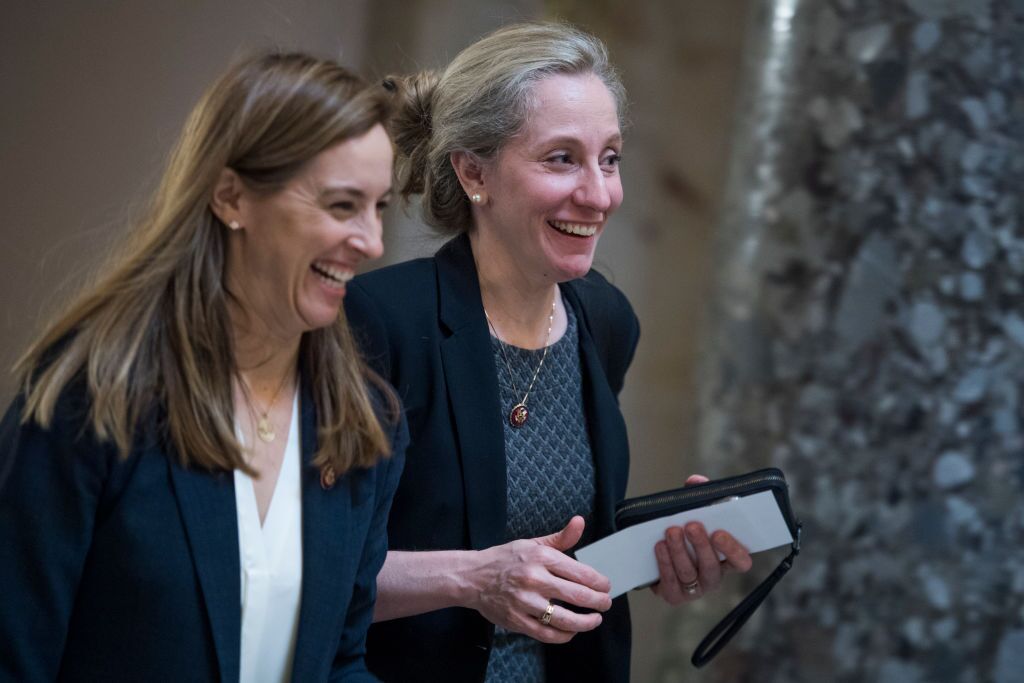
Women could grow their share of governor offices by two this November if recent polls hold up for the frontrunners. Next year is the big year for gubernatorial elections, but New Jersey and Virginia are both holding open-seat races this year.
In Virginia, a woman is guaranteed to win. The favorite according to polls is Democrat Abigail Spanberger, whose RealClearPolitics polling averages have her leading her Republican opponent, Winsome Earle Sears, by seven percentage points, including a 52 percent to 40 percent advantage in the most recent poll. In New Jersey, Democrat Mikie Sherrill has an average lead of 9 percentage points over Republican Jack Ciattarelli, including most recently a 49 percent to 41 percent edge.
Hillary Clinton Headlines New Report Calling for Consideration of Gender Quotas

The New York Times reports this week that Hillary Clinton “sees a dangerous moment for women’s rights and democracy.” Excerpts:
In a recent interview, Mrs. Clinton described a “coordinated, deliberate effort to dismantle the progress toward women’s equality.” With a new report on the state of gender equality tied to the anniversary of her famous 1995 speech [at a Beijing conference on women’s equality] she hopes to revive her remarks as a rallying cry.
The report, titled “Beijing+30: A Roadmap for Women’s Rights for the Next Thirty Years,” acknowledges that much progress has been made for women’s rights since 1995, when Mrs. Clinton, then the first lady, addressed the United Nations. Women have won legal rights and protections in over 100 countries. The gap between boys and girls in primary school has closed. And the maternal mortality rate declined substantially.
But in many areas, the rights of women are regressing. In 2024, nearly a quarter of nations saw a backlash on women’s rights and gender equality, according to the report, which cites examples of efforts to remove femicide from the penal code in Argentina, a push to overturn a ban on female genital mutilation in Gambia and the renewed total exclusion of women from public life in Afghanistan…
The report was released by the Women’s Initiative program at Columbia University’s Institute of Global Politics, which was co-founded by Mrs. Clinton in 2023. The Clinton Global Initiative plans to make the issue a major focus of its work in the future, starting at its annual meeting this week in New York City…
With the United States cutting foreign aid, the report recommends a series of new ways to fund women’s organizations across the globe, suggests forming new coalitions that include the private sector and urges government leaders to enact gender quotas to increase representation in government.
Kamala Harris Authors New Book Telling Her 2024 Campaign Story
Former vice-president Kamala Harris has authored the new book 107 Days about her late emergence as the Democratic nominee in 2024 after incumbent president Joe Biden stepped down in the wake of his disastrous debate with Donald Trump.
The Guardian reports on some of the challenges Harris shares about the campaign, which resulted in the second narrow defeat in eight years of a woman seeking to be our first female president:
Kamala Harris has revealed she was “angry and disappointed” when Joe Biden called her hours before her US presidential debate with Donald Trump to suggest powerful associates of Biden’s brother refused to support her….
Harris writes: “Then he got to his point. His brother had told him that those guys were not going to support me because I’d been saying bad things about him. He wasn’t inclined to believe it, he claimed, but he thought I should know in case my team had been encouraging me to put daylight between the two of us.”..
During the campaign and in its aftermath, Harris had avoided criticism of the president she served beside and defended him amid questions about his mental acuity.
But in 107 Days, she lays bare tensions between the two. When the Supreme Court overturned the Roe v Wade decision on abortion in 2022, for example, “Joe struggled to talk about reproductive rights in a way that met the gravity of the moment.”
Harris acknowledges there was a distinction between Biden’s ability to govern and to campaign, and that she had concerns about the latter. “His voice was no longer strong, his verbal stumbles more frequent,” she writes….
Harris had felt similar frustrations, recalling how she was once castigated by Biden’s team for apparently delivering a speech too well. “Their thinking was zero-sum: If she’s shining, he’s dimmed.”
Biden bowed to the inevitable and dropped out of the election race on 21 July, then endorsed Harris. Campaign advisers urged her to distance herself from the president. David Plouffe, a senior aide, eventually told her: “People hate Joe Biden.” Harris admits: “It was hard for me to hear that.”
D.C. Delegate Eleanor Holmes Norton Draws Prominent Male and Female Challengers
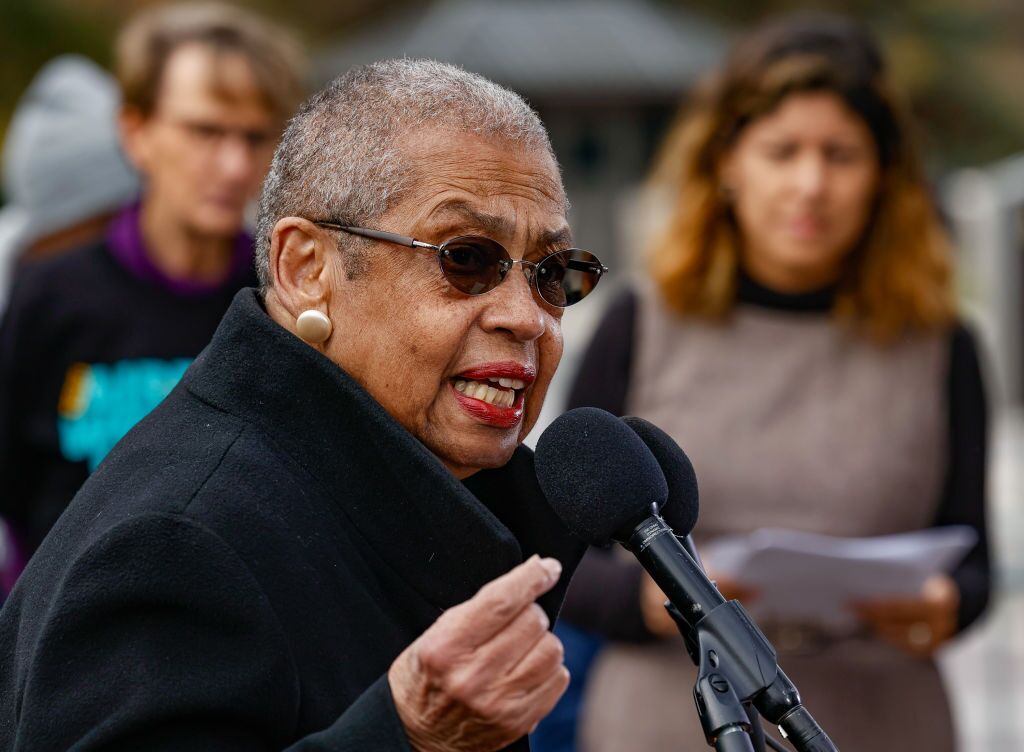
Eleanor Holmes Norton, an 88-year-old, has been a prominent voice for women in Congress since her first election in 1991, but is drawing a growing field of challengers—including several women and now Robert White, a member of the city council.
Former Democratic National Committee chair Donna Brazile called on Norton to step aside, according to this article from The Guardian.
“The announcement [of Robert White’s candidacy] comes days after Donna Brazile, a former chief of staff to Norton who rose to serve as interim chair of the Democratic National Committee, said that Norton should not seek a 19th term in the office she has held since 1991. Though not allowed to cast votes in the House, Norton was known as a tenacious advocate for the rights of the federal district, but has appeared subdued in recent years. She had been pictured requiring the help of an aide at public appearances, and reads haltingly from prepared remarks at committee appearances, even when the topic concerns contentious proposals to change Washington DC’s laws.”
“She is no longer the dynamo she once was, at a time when DC needs the kind of energetic representation in Congress she provided for decades,” Brazile wrote in the Washington Post. “It’s in her best interest, and the interest of DC, for her to serve her current term but then end her extraordinary service in Congress and not seek reelection next year.”
In July, Kinney Zalesne announced her bid. According to The Hoya:
Zalesne previously served as deputy national finance chair at the DNC and co-chair of Women for Harris…Zalesne’s campaign raised $250,000 the day after she announced her candidacy, according to a press release given to The Hoya. Norton’s campaign raised over $48,000 from January 2025 to June 2025, according to federal data, though she does not appear to be actively fundraising. Norton’s previous primary challengers in 2024 and 2022 all raised less than $50,000 throughout their campaigns.
This primary will be held with ranked-choice voting, which earned the backing of 73 percent of D.C. voters and won in every precinct in the City when on the ballot in November 2024. RepresentWomen has reported on how women often do well in crowded fields with RCV, which rewards building on your first support by finding connections with backers of other candidates.
Women Running for Mayor in November Elections with Ranked-Choice Voting

This November, our friends at FairVote report on how cities around the country will elect leaders with ranked-choice voting (RCV), including in Colorado, Delaware, Maine, Massachusetts, Minnesota, New Mexico, Utah and Virginia. I’m keeping a particularly close eye on Santa Fe, N.M. and Fort Collins, Colo., with robust fields of candidates seeking to win open seat races for mayor.
Four women are among the eight mayoral candidates running in Santa Fe in its third RCV election, along with fields of at least three candidates in two of the city’s three city council districts. Big news from this week was the endorsement of Joanne Vigil Coppler by Gov. Michelle Lujan Grisham. Ballotpedia, which effectively serves as a voter guide for local elections in much of the country, has a dedicated resource page for the mayoral race. With the Santa Fe New Mexican coverage behind a firewall, a helpful news source is the University of New Mexico student publication, which has a number of interviews posted on the contest, including with election officials on the role of RCV.
The Coloradan reports on the seven candidates running for mayor, including two women on the city council and a woman who previously served on council, and contested RCV races in two city council districts in its inaugural RCV election.
Getting Started: Ireland-Based Initiative Wants to Fix Politics’ Gender Information Gap

I greatly admire Akshi Chawla, who writes the #WomenLead Substack and is a valuable resource on international news and stories about women’s representation. This week, she writes about an important new initiative on the great question of “how do I get started?”
See Her Elected (SHE) is an Ireland-based initiative that supports women across rural Ireland to become county councillors. They do so by providing free political education to women aspiring to run for election. Their support includes a comprehensive guidebook on contesting polls, a series of online workshops covering all aspects of running for an election, as well as specialist masterclasses.
In this conversation with #WomenLead, Dr. Michelle Maher, the program manager at SHE, shares more about their model of supporting women, their focus on rural areas, and their measures of success. This is the first interview we are publishing as part of a new series…
Learnings, in brief:
- For women, especially those who are new to politics, a lack of information about the political field can be a significant barrier to entering politics.
- Closing this information gap requires not only preparing knowledge products but also delivering them in ways that work for women.
- SHE attempts this by trying to fit into women’s lives seamlessly—whether it is in scheduling their online classes or planning the logistics of their in-person sessions comprehensively.
The Fight Is Not About Numbers: How Women Lead in Berlin

At the Global Women Summit 2025 in Berlin, Monika Schulz-Strelow, founding president of Frauen in die Aufsichtsräte (Women on Boards, FidAR), was honored with the Leadership Award for her decades-long fight for gender equality in leadership.
In a wide-ranging conversation with the Berliner Morgenpost, Schulz-Strelow reflected on the long road to Germany’s 2015 gender quota law for supervisory boards, the culture shift it has sparked, and the work that remains. As was noted in the Berliner Morgenpost:
“This fight is not just about numbers and quotas; it’s about fundamentally changing corporate culture. Women often enter meetings better prepared and ask more critical questions. One might even question whether the global financial crisis of 2008 would have unfolded as it did if more women had been in boardrooms back then. While that‘s a hypothetical question, it’s at least fair to say that women would have likely pushed for greater scrutiny of opaque financial transactions.”
She highlighted the progress of the past decade—women are no longer seen as “exceptions” on boards, and many now proudly support quotas—while acknowledging ongoing challenges. Women leaders still face the realities of company politics, fear of being overshadowed, and the pressures of balancing family and career. However, she emphasized the transformative value that women bring to boardrooms, including greater preparation, critical questions, and a willingness to challenge opaque practices.
Her reflections are a reminder that systems reforms like quotas do more than change the math—they change the dynamics. Once the threshold of 30 percent representation is crossed, women’s voices are no longer tokenized but recognized as complete and essential participants.
From Berlin to Beijing+30, the lesson is the same: When women gather, organize and persist, they reshape institutions and pave the way for more inclusive leadership.
Marshall Islands President Stands Tall in the Face of Climate Change Threat
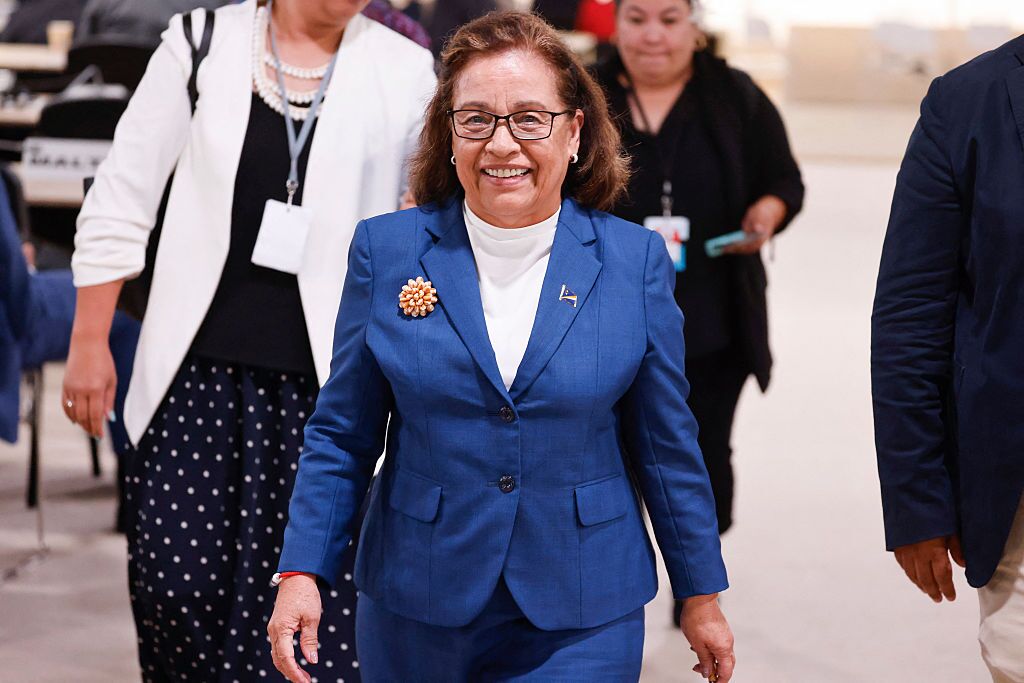
Leaders of nations around the world have gathered in New York City this week for the annual United Nations gathering of world leaders. The New York Times has a fascinating set of profiles of leaders grappling with the realities of climate change, including the rapidly vanishing Oceania nation of the Marshall Islands, which is led by the region’s first-ever woman president, Hilda Heine. The International Women’s Development Agency reported on Heine’s remarkable story in 2017, writing:
Even before her election, President Heine was a household name in the Pacific for the work she’s done in making space for women’s voices in public discourse.
She founded Women United Together Marshall Islands, a women’s rights organisation that brought together individual women’s groups from across the archipelago to amplify their voices on issues like human rights advocacy, women in leadership, climate change, and violence against women. She was the first person from the Marshall Islands to complete a PhD, working as a high-school teacher before going on to become Minister of Education and a huge advocate for education reform.
When elected President, she became the first female leader in Micronesia, and only the fourth woman to lead in a country in the entire Pacific.
Here are excerpts from her recent New York Times interview:
We will be submerged by 2050 if the world doesn’t do its part. We have a population of around 37,000. Ten years ago, we had closer to 50,000… When we have regular inundations, some people, rather than rebuilding their homes, decide to go away and settle in the U.S. Sea-level rise is becoming scary for many of us….
It’s unfortunate that the U.S. has decided to step out of [the Paris accords]. But there are those who rally together, because there are no other options for them. And so I think people are coming together stronger than before because you cannot rely on the U.S. in this respect. Something positive is happening, even though it’s not at the level that the Marshall Islands and other small developing countries have been advocating…
I’ll share a poem that was put together by my daughter, Kathy Jetn̄il-Kijiner. It’s a reflection on how people are feeling about what’s happening.

Sandra Day O’Connor’s Swearing-In, 44 Years Later: A Legacy That Opened Doors
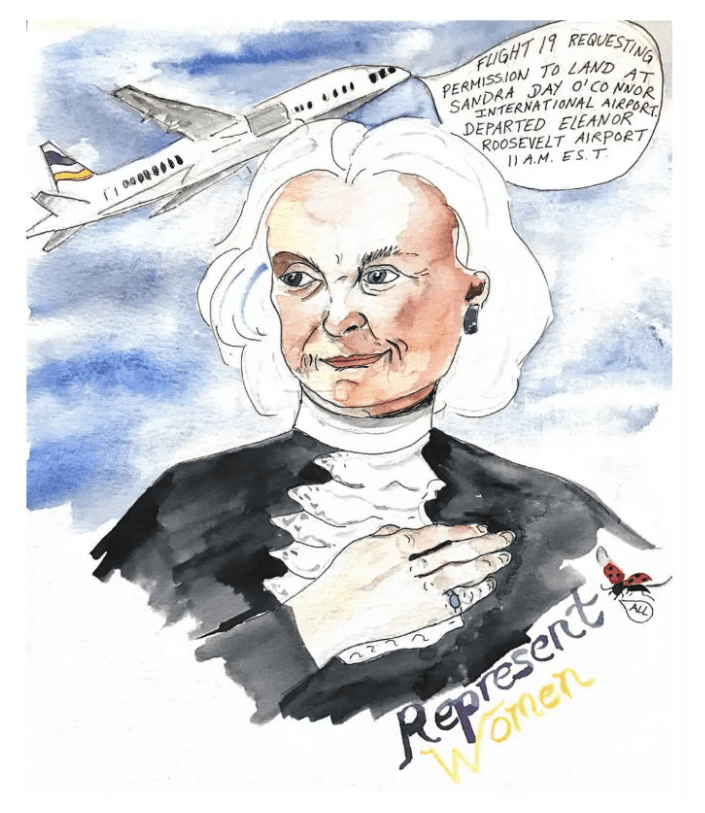
This week marked another milestone in American history: On Sept. 25, 1981, Sandra Day O’Connor was sworn in as the first female justice of the United States Supreme Court. Her confirmation vote in the Senate was unanimous—99 to 0—and her presence on the Court broke a nearly 200-year streak of an all-male judiciary at the nation’s highest level.
Justice O’Connor served for nearly 25 years, during which she became known for her pragmatic approach and for often casting the decisive vote in closely divided cases. Beyond her rulings, however, her appointment carried a weight that cannot be measured in opinions or citations. For millions of women and girls, O’Connor’s place on the bench was proof that the doors of power could be opened—and that women’s voices could shape the laws of the land.
Her story is as remarkable as her jurisprudence. Raised on a remote Arizona ranch without electricity or running water, she went on to Stanford Law School, where she graduated near the top of her class, but struggled to find a job because of her gender. She accepted an unpaid role just to enter the progression, balancing early career challenges with raising three children before rising through Arizona’s political and judicial ranks.
In 1973, she became the first woman to serve as majority leader of a state Senate anywhere in the country, and eight years later, she made history again on the Supreme Court.
Reflecting on her career, O’Connor once said: “The power I exert on the Court depends on the power of my arguments, not on my gender.”
Yet her gender did, in fact, matter, because her presence changed the face of the Court and the imagination of a nation.
I wrote in 2018 that O’Connor deserves another “first”: the first American woman to have an airport named in her honor. At the time, I was stunned to learn that no U.S. airport carries the name of a woman leader. Honoring her this way would be a fitting tribute to a trailblazer who not only opened doors for women in law but also championed civic learning and inspired generations to lead.
Her legacy is also a reminder that women breaking barriers have always relied on networks of support. So, to close out this week’s edition, I would like to take a moment to thank my husband, Rob Richie, who has always been my greatest supporter in this work to advance women’s representation.
As Justice Ruth Bader Ginsburg once noted, “Women will have achieved true equality when men share with them the responsibility of bringing up the next generation.”
The same is true in our quest for political parity—we need men standing shoulder to shoulder with women to ensure lasting change. I’m so grateful to have Rob by my side doing just that all these years—and we also wish him a very happy birthday this week! Here’s to many more years of birthdays and milestones for democracy to come!
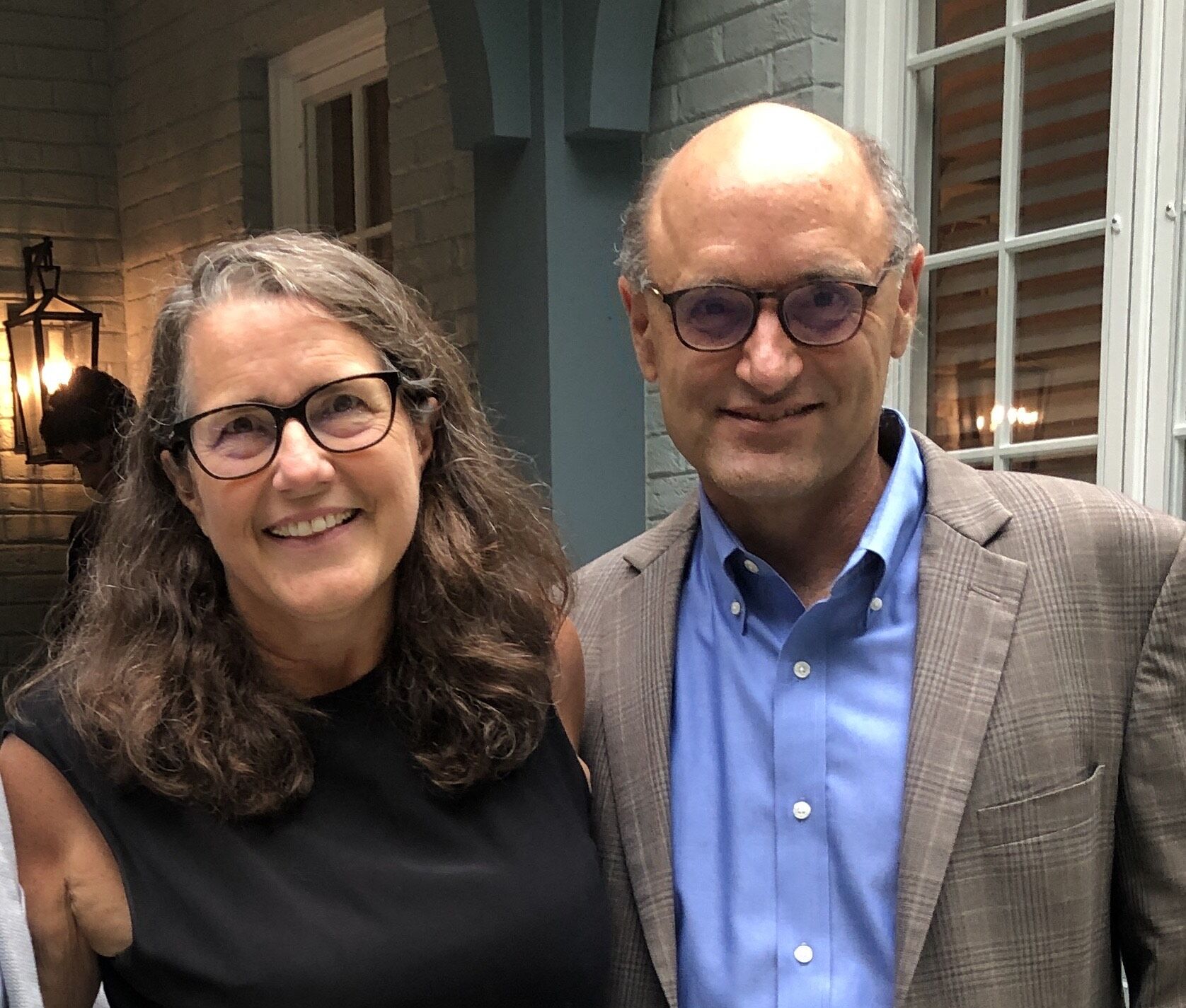
Grateful for my greatest supporter—thank you, Rob, for standing shoulder to shoulder with me in the work for women’s representation. Happy birthday!
Great Job Cynthia Richie Terrell & the Team @ Ms. Magazine Source link for sharing this story.



